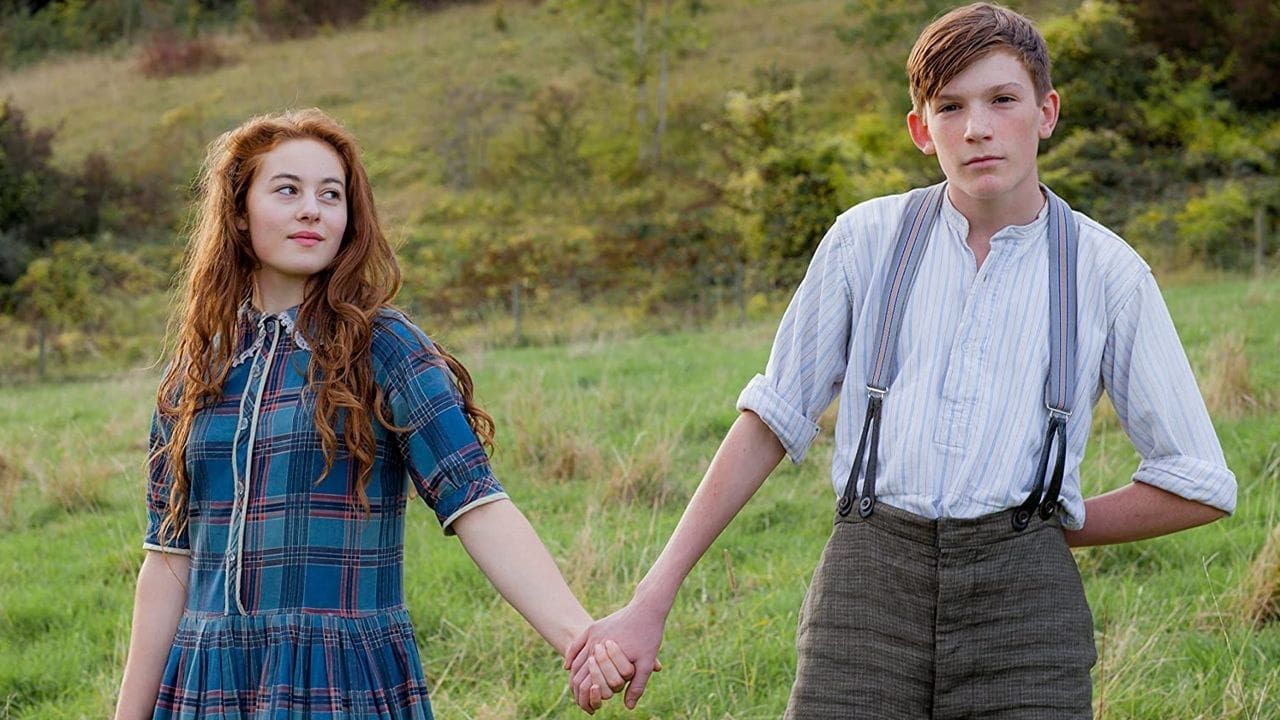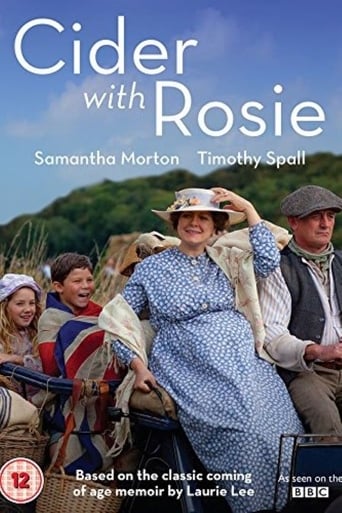



just watch it!
It's entirely possible that sending the audience out feeling lousy was intentional
View MoreThe acting is good, and the firecracker script has some excellent ideas.
View MoreThis is a dark and sometimes deeply uncomfortable drama
View More...not only for story - nostalgic, seductive, bitter and soft - but for atmosphere. for an England who , for a Eastern European like me, is almost mythological. for Samantha Morton giving a beautiful performance. for the poetry of images . for something who is real personal. memories, crumbs of memories, gentle change of a young man, family, a village life and unique forms of joy. and something more. out of words. but great and usefull and protective.
View MoreCider with Rosie is a text that almost everyone seems to read at school. I never did read the whole book but was always given extracts to work on. I expected this would be some kind of nostalgia filled reminiscence of childhood in Gloucestershire.I liked young Loll surrounded in a busy household playing sodgers (sic) in the middle of The Great War. However it is a childhood where his father is absent and young Loll does not understand the brutality of the war or the deserter hiding in the woods.At school he sits between two girls who will have an influence in his childhood and even his adult life.The older Loll lacks the sweetness of his younger self, being gawky like many adolescents. However he discovers that at times the villagers need to stick together such as when the domineering teacher is placed on top of the cupboard to the delight of the rest of the class or in a more darker turn when a returning ex-pat, now wealthy is killed and robbed.June Whitfield and Annette Crosbie play the two grannies living on the top and bottom of a house who communicate with each other by banging their broom handles on the floor or the ceiling.Eventually Loll has that romantic encounter under the cart with Rosie fuelled with cider which acts as a sort of climax to the story.I have to say this was not a great adaptation even though it was busy in places. We are told that Loll's mother went to see her husband after the war but we got to know little about him or why he abandoned his family. The 1998 television film gave more details about this.This version of the film had narration by Timothy Spall as the voice of Laurie Lee reading extracts from the book in a very florid dialect which sounded unnatural and over the top to my ears. The 1998 film had narration recorded by Laurie Lee himself just before he died and that sounded more naturalistic.However director Philippa Lowthorpe has worked hard to bring a different nuance to this version of the film.
View MorePhilippa Lowthorpe's production used a three-level narrative to tell Laurie Lee's charming story of growing up in the First World War and beyond. The adult Laurie Lee (Timothy Spall) read extracts from the source-text in voice-over, setting the story in context and explaining why certain incidents were important. The narrative oscillates between the middle of the First World War when the young Lol (Georgie Smith) goes to school for the first time and tries to respond to the events around him; and the postwar era when the older Loll (Archie Cox) copes with adolescence and his sexual feelings for Rosie (Ruby Ashbourne Serkis). The unifying element between the two narratives was Annie, Laurie's mother (Samantha Morton), charged with the responsibility of bringing up a large family on her own.This CIDER WITH ROSIE worked hard to recreate life in a small village in which everyone "looked after their own," as the adult Lee put it. Everyone knows everyone else, which has its disadvantages as well as its advantages. The adolescent Loll discovers this to his cost in school when his nascent romantic feelings become a subject for class ribaldry. On the other hand the class discover some kind of strength in community, especially when it comes to rebelling against sadistic teacher Miss Buckley (Sarah Sweeney). In one climactic sequence Spadge Hopkins (Jack Harris) picks the teacher up and places her on the desk in front of the class to almost universal acclaim.Life might have been idyllic for the young Loll, but uncomfortable reality keeps breaking in. Director Lowthorpe is very good at emphasizing the contrast between the child Loll playing soldiers with a piece of wood and a colander on his head, and the genuine fear of deserter James (Billy Howle) as he tries to conceal himself from the military police. Loll has no real idea what is going on, as witnessed in the sequence where James is finally arrested, and the little boy wails: "I didn't tell them!"The production contains two comic cameos from June Whitfield and Annette Crosbie as the two grannies living on their own at the top and bottom of a house and communicating with one another by banging their sticks on the floor. The young Loll has a particularly touching moment with Granny Trill (Crosbie), who keeps playing with her hair, when he implies that she is wearing a wig. The child's ingenuousness exposes adult pretensions.The climax of the production comes when the adolescent Loll and Rosie hide under a cart to drink cider. This is the moment when they finally discover the pleasures of sexual contact, as well as drinking alcohol. Although it is only a fleeting moment, never to be repeated, it is an ecstatic one: Loll lies down in a filthy puddle, his clothes saturated in mud, and recalls the feelings associated with it.CIDER WITH ROSIE is not particularly dramatic, but its evocation of a lost world is both touching and nostalgic. All credit to everyone involved in this charming production.
View MoreI'll try to submit a balanced review, having read through the other reviews submitted here I can see where both are coming from. Post first world War and life was slowly returning to normal, many families were left with no fathers, and life was tough. The story focuses on young Loll, seeing his transformation from a child into a young adult. The best element was Samantha Morton, she gave a terribly sweet, caring and sincere characterisation of Loll's mum Annie. She did well by her children, and remained desperate for the return of her absent husband. The acting was a little school play at times, but I'll applaud young Georgie Smith. It is a little slow in parts, but having read the book several times it was very much intended. I'd imagine it will be the feature of many a GCSE pupils project for years to come.
View More